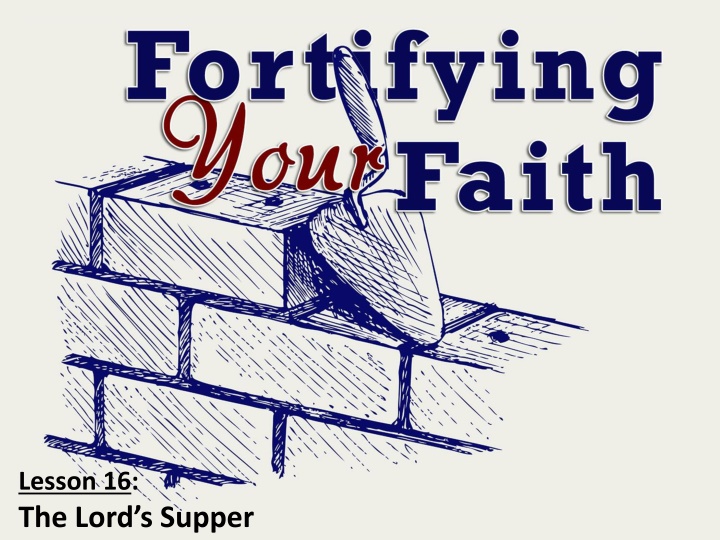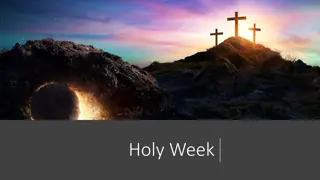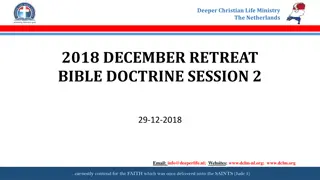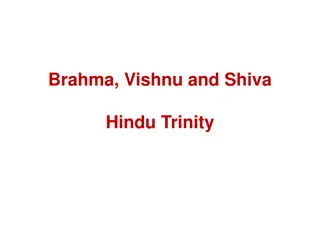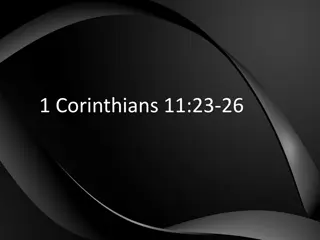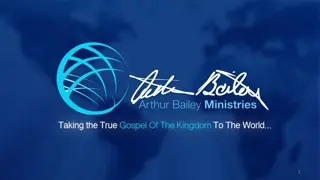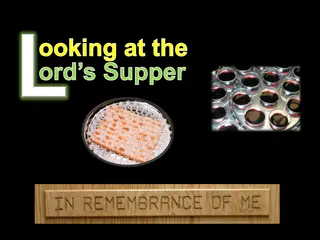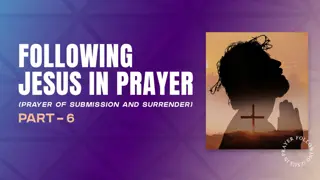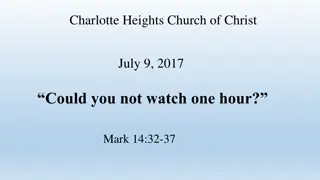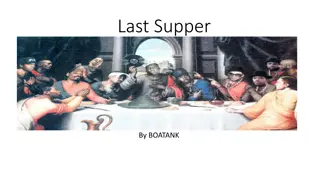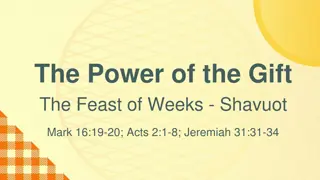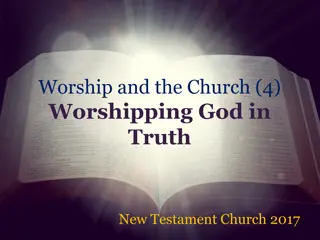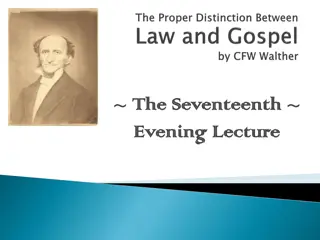The Lord's Supper: Significance and Observance
Explore the institution and significance of the Lord's Supper as instituted by Jesus before his crucifixion. Delve into its nature as a new feast and covenant, a time for communion, memorial, self-examination, and proclamation in a worthy manner. Reflect on the elements of the Supper and the importance of fellowship with Christ.
Download Presentation

Please find below an Image/Link to download the presentation.
The content on the website is provided AS IS for your information and personal use only. It may not be sold, licensed, or shared on other websites without obtaining consent from the author.If you encounter any issues during the download, it is possible that the publisher has removed the file from their server.
You are allowed to download the files provided on this website for personal or commercial use, subject to the condition that they are used lawfully. All files are the property of their respective owners.
The content on the website is provided AS IS for your information and personal use only. It may not be sold, licensed, or shared on other websites without obtaining consent from the author.
E N D
Presentation Transcript
Lesson 16: The Lord s Supper
The Lords Supper I. Jesus Instituted the Lord s Supper on the Night Before His Crucifixion. A. The institution of the Lord s Supper is recorded in four passages: Matthew 26:26-29; Mark 14:22-25; Luke 22:17-20; 1 Corinthians 11:23-26. B. Scripture never uses the words Eucharist or Sacrament. C. Jesus instituted the Lord s Supper after observing the Jewish Passover with His apostles.
The Lords Supper I. Jesus Instituted the Lord s Supper on the Night Before His Crucifixion. D. When instituting His feast, Jesus emphasized that it was new. 1. I will no longer drink of the fruit of the vine until that day when I drink it new in the kingdom of God (Mark 14:25). What was new ? 2.The Lord s Supper was a new feast/memorial. 3.The Lord s Supper was in a new kingdom. 4.The Lord s Supper was of a new covenant. 5.The Lord s Supper was on a new day. 6.The Lord s Supper was new a new feast, of a new memorial, of a new deliverance, in a new kingdom, by a new covenant, on a new day, for a new people.
The Lords Supper II. Jesus Instituted the Lord s Supper to Be Extraordinarily Significant for the Church. A. Jesus instituted the Lord s Supper as a time for communion (1 Cor. 10:15-22). 1. Communion is not just what it is called; communion is what is happening. 2. The cup of blessing which we bless, is it not the communion of the blood of Christ? The bread which we break, is it not the communion of the body of Christ? (1 Cor. 10:16). 3.The Greek word for communion in this passage is koinonia, which is the word for fellowship, participation, partnership, sharing. 4.In the Lord s Supper (emphasize Lord s ), we commune with Christ Himself.
The Lords Supper II. Jesus Instituted the Lord s Supper to Be Extraordinarily Significant for the Church. B. Jesus instituted the Lord s Supper as a time for memorial (1 Cor. 11:23-25). 1.God knew that His people needed memorials, in order to remember Him and to remember what He had done for them. 2.When it came to the Lord s Supper, twice Jesus commanded, Do this in remembrance of Me (1 Cor. 11:24-25). 3.The two elements of the Supper themselves provide the key to the memorial. 4.In the Lord s Supper, we are to be discerning the Lord s body (1 Cor. 11:29).
The Lords Supper II. Jesus Instituted the Lord s Supper to Be Extraordinarily Significant for the Church. C. Jesus instituted the Lord s Supper as a time for self- examination (1 Cor. 11:27-30). 1. But let a man examine himself, and so let him eat of the bread and drink of the cup. 2.While reflecting upon the sacrificial death of Christ, one must reflect on his own life. D. Jesus instituted the Lord s Supper as a time for proclamation (1 Cor. 11:26). E. Jesus instituted the Lord s Supper to be observed in a worthy manner (1 Cor. 11:27, 29).
The Lords Supper III.Jesus Instituted the Lord s Supper to Be Observed By the Church Every First Day of the Week. A. Division among denominations exists over the frequency of observing the Lord s Supper. B. It is helpful to understand that God specified the time and frequency of all of His feasts. C. God did give very clear instructions on the regularity and frequency of partaking. D. The New Testament church continued steadfastly in the Lord s Supper.
The Lords Supper III.Jesus Instituted the Lord s Supper to Be Observed By the Church Every First Day of the Week. E. The New Testament church came together to eat the Lord s Supper (on Sunday). 1.In Acts 20:7 is an apostolic example of the church coming together to eat the Lord s Supper every week. 2.In 1 Corinthians 11:17-34 is direction to the church to come together for the Lord s Supper.
The Lords Supper III.Jesus Instituted the Lord s Supper to Be Observed By the Church Every First Day of the Week. F. The New Testament church came together every first day of the week. 1.When God instructed Israel, Remember the Sabbath day, to keep it holy (Ex. 20:8), which Sabbath do you suppose they understood God to be identifying? 2.In 1 Corinthians 16:1-2 is instruction for Christians to gather every first day of the week.
The Lords Supper III.Jesus Instituted the Lord s Supper to Be Observed By the Church Every First Day of the Week. G. There is no Biblical authority for partaking of the Lord s Supper on any other day other than the first day of the week. 1.By apostolic example, the church is only authorized to partake on the first day of the week, when the disciples come together (Acts 20:7). 2.By apostolic direction, the church is only authorized to partake on the first day of every week, when the church is to come together (1 Cor. 11:17, 20; 16:1-2).
The Lords Supper IV.Jesus Instituted the Lord s Supper to Be a Special Feast for His Children. A. The Lord makes a definite distinction between the Lord s Supper and a common meal. B. The Lord identifies those for whom the Lord s Supper is intended. 1.Jesus promised to partake in the Lord s Supper in the kingdom of God (Mk. 14:25). 2.Jesus observes the communion with those in His Father s kingdom (Matt. 26:29). 3.Therefore, the Lord s Supper is for citizens in the kingdom of God (John 3:5). 4.Jesus intended for all Christians to partake of the entire feast.
